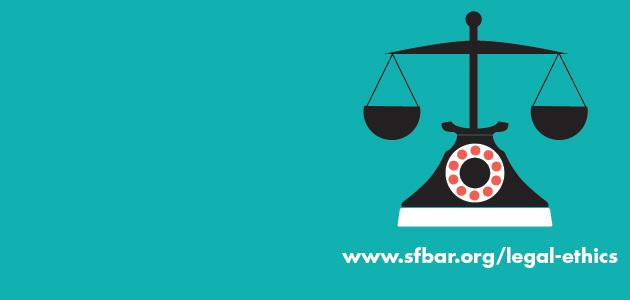Constant business development pressure can lead to behavior at odds with prudent risk management. Many attorneys are reluctant to cut the cord on existing client relationships, even when substantive services are no longer needed. To encourage clients to think of…
Taking the Easy Road Could Get Your Expert Disqualified
To save time and money, experts are often provided mediation briefs to be used as predicates for their testimony. Such briefs are typically the most comprehensive summaries of the case. However, taking this short cut could get your expert…
Is the Representation Over? Can I Accept A New Client Adverse to a Former Client?
A new client requests your services. You run your conflict check and discover that the requested matter is against a former client. What are your ethical obligations? Can you represent this new client? Is the former client a former…
LinkedIn Endorsements: Potential Legal Ethics Problem?
If you are an active LinkedIn user, there’s a good chance that you have received an endorsement by someone without personal knowledge of whether you have the claimed skill. Well-meaning perhaps, but such endorsements of attorneys are potentially misleading…
The Ethics of Advising California Marijuana Businesses
Californians will vote in November on Proposition 64, the Control, Regulate and Tax Adult Use of Marijuana Act. Proposition 64 would establish and regulate a commercial marijuana industry. Its provisions include renaming the Bureau of Medical Marijuana Regulation as the…
Why It’s a Good Idea to Keep Track of Your Time in Contingency Fee Cases
Many contingency fee attorneys balk at keeping track of their time on each case. In fact, there is no rule that requires contingency fee attorneys to track their hours on each case. (Mardirossian & Assoc., Inc. v. Ersoff (2007) 153…
Electronically Stored Information and the Duty of Competence
California Rule of Professional Conduct 3-110 (“Rule 3-110”) states that “ member shall not intentionally, recklessly, or repeatedly fail to perform legal services with competence.” Every attorney considers this duty on a daily basis in the practice of law. While…
Your Ethics Are Implicated by Mediation Confidentiality
In 2014, this Legal Ethics Corner column provided readers with “Some Thoughts On Issues Raised, But Not Resolved, by Cassel v. Superior Court.” Those issues remain unresolved, but some are closer to resolution than before. You may recall that the…
Legal Ethics Corner: How Much Do You Need to Know About Your Client’s Insurance Coverage?
It’s no secret that insurance coverage is often a key issue in litigation, as insurance is used to pay defense costs, fund settlements, and satisfy judgments. In recognition of this, courts have recently been imposing more burdens on lawyers when…
Ethics Applicable To Court Appointed Attorney: Court Pressure vs. Client Privacy
The court appoints you to represent an individual facing charges which, if proven, could lead to loss of liberty and property. You meet confidentially with your new client, discuss the facts relating to the charges, assess your client’s responses and…
Keep Your Client in Mind, the Ethics Will Follow
Your phone rings. Being a solo or small firm lawyer, you answer it yourself. The caller, after an exchange of pleasantries, says, “My mom needs a trust.” The flag that goes up in your mind should be, if not red,…
Got Ethics? Join the Committee in 2016 to Stay Active in the Legal Community
In addition to holding its 4th Tuesday monthly meetings at BASF’s offices and staffing the BASF Legal Ethics Hotline, the active members of BASF’s Legal Ethics Committee have: regularly contributed to this Ethics Corner; jointly authored formal ethics opinions with…













